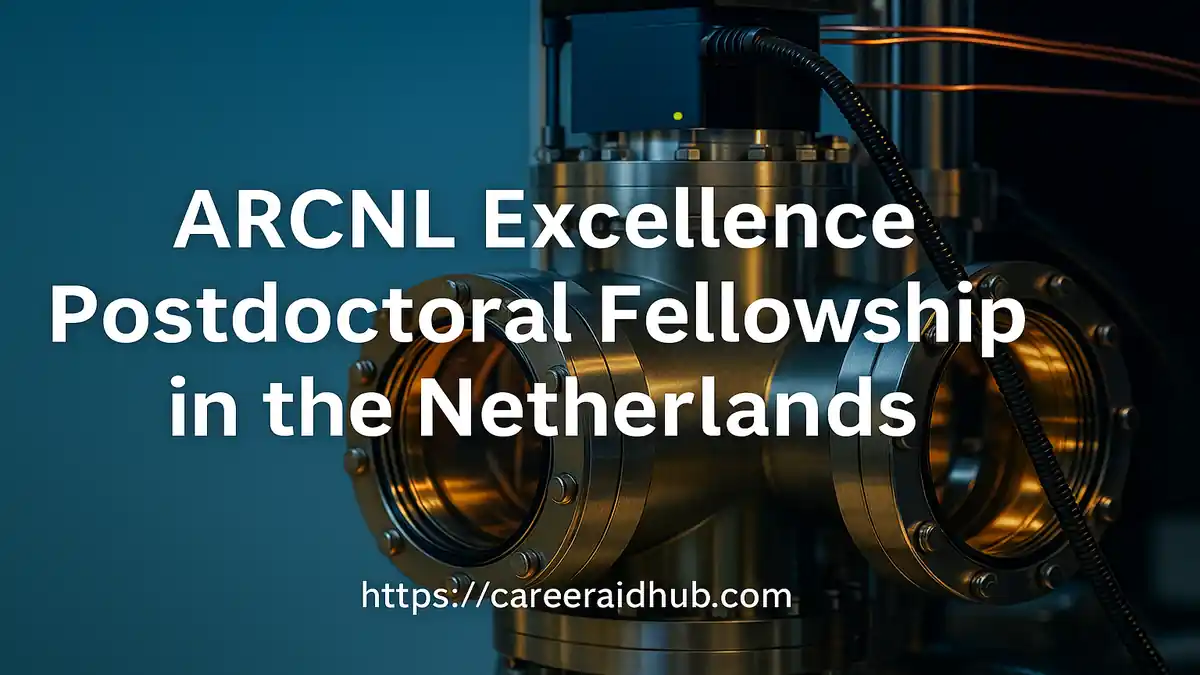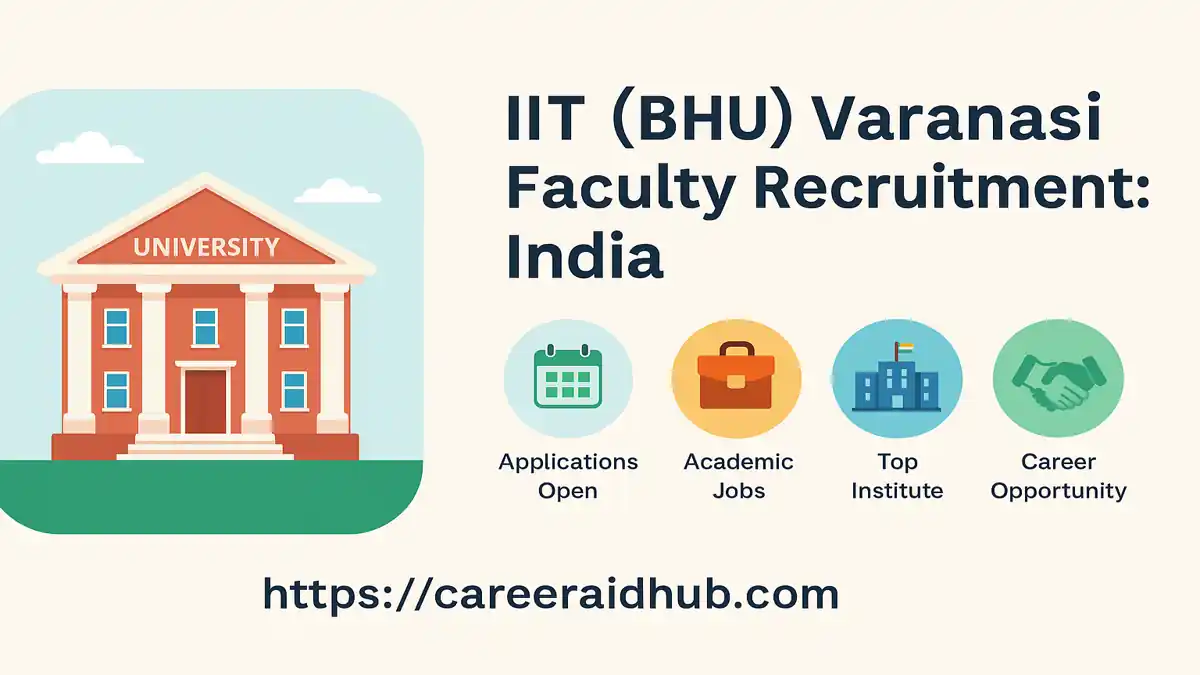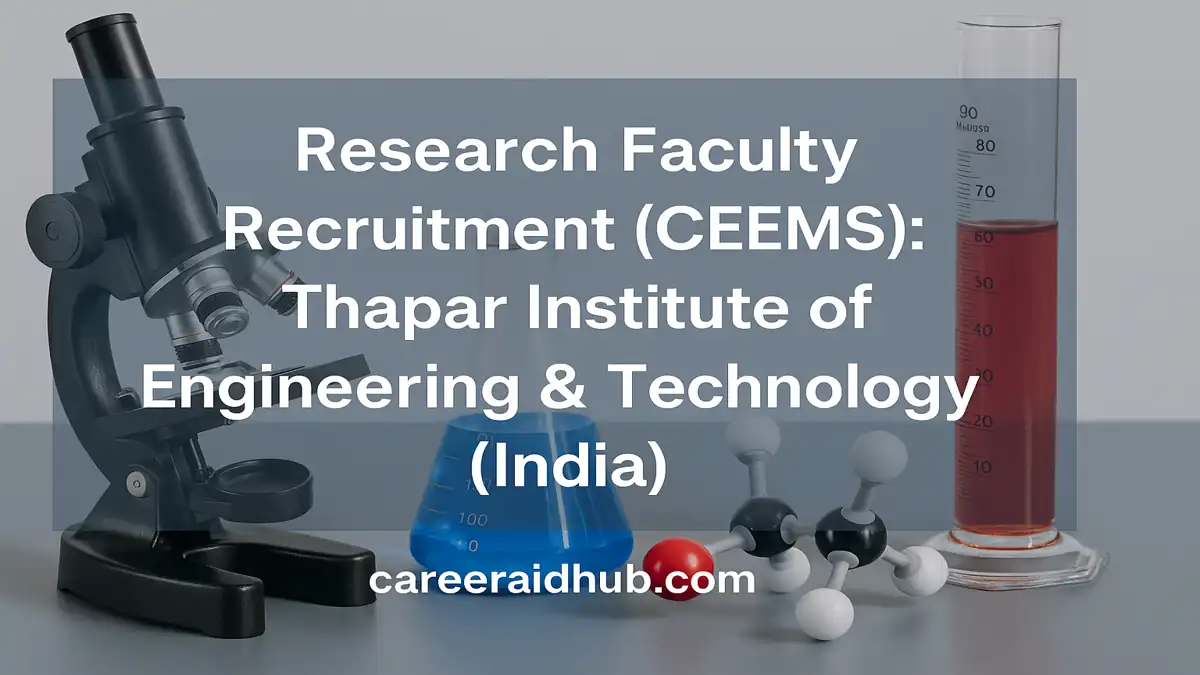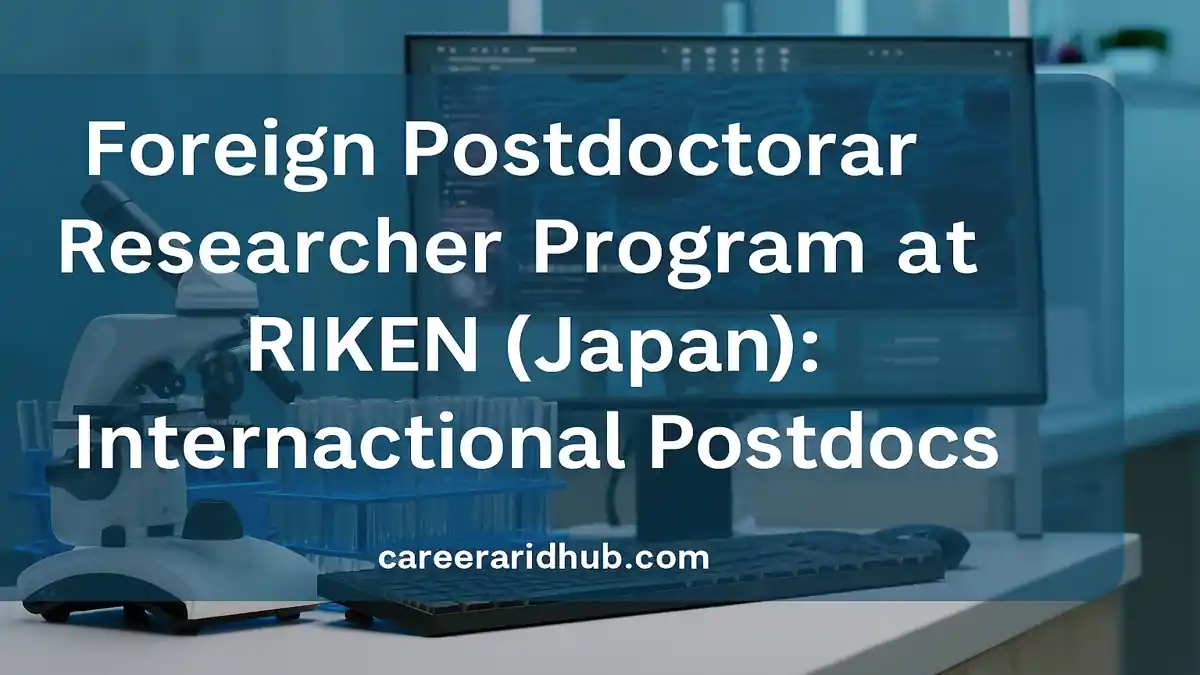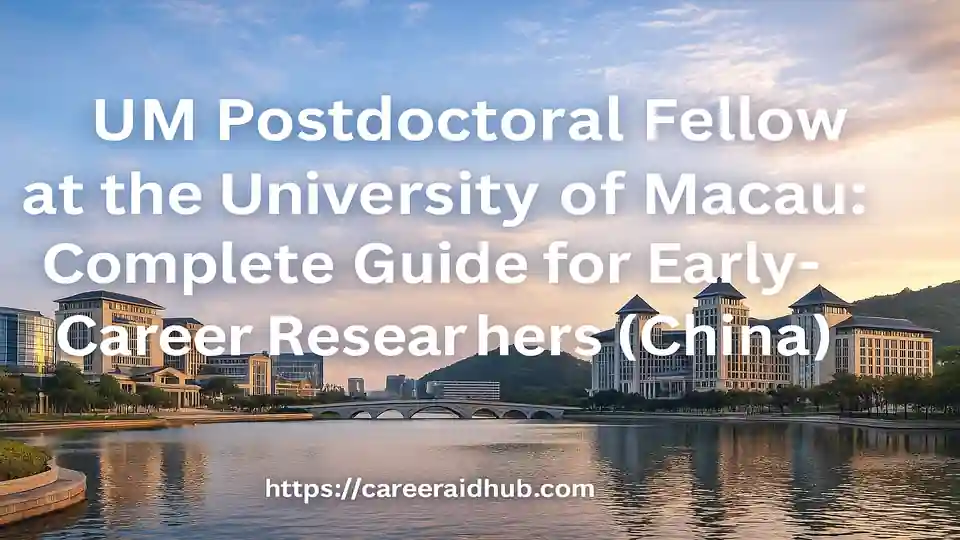The Emmy Noether Programme, administered by the German Research Foundation (Deutsche Forschungsgemeinschaft, DFG), represents one of Germany’s most distinguished research funding initiatives for postdoctoral scholars. Specifically crafted to support highly qualified early-career researchers, the programme facilitates the transition to professorship by enabling candidates to lead an independent junior research group.
Structured over six years, the programme provides a platform for scientific autonomy, allowing emerging researchers to establish their presence in Germany’s competitive academic landscape. For German researchers returning from international posts and international scholars alike, the Emmy Noether Programme presents an exceptional opportunity to develop a research career in a globally respected academic environment.
The Emmy Noether Programme by the German Research Foundation (DFG) empowers outstanding early-career researchers to establish independent research groups in Germany. Designed to foster academic leadership and scientific excellence, this prestigious six-year fellowship serves as a structured pathway to professorship for scholars with demonstrated international research experience and innovation potential.
Purpose and Scope
Named in honor of Emmy Noether, one of the most influential mathematicians of the 20th century, the programme embodies values of intellectual rigor, innovation, and independent thought. It aims to:
none;">
- Provide a merit-based pathway to professorship through independent research leadership.
- Strengthen Germany’s scientific competitiveness by nurturing promising talent.
- Attract outstanding researchers from across the globe to contribute to German research institutions.
The programme is designed to accommodate scholars across a wide spectrum of academic disciplines, from natural sciences and engineering to humanities and social sciences. It reflects Germany’s strategic commitment to fostering high-impact research leadership.
Eligibility Criteria
Eligibility for the Emmy Noether Programme is restricted to researchers who meet stringent academic and professional qualifications. The core criteria are as follows:
-
- PhD awarded within the past four years: Applicants must have earned their doctorate no more than four years prior to submission.
- Minimum of two years postdoctoral research experience: This experience should be demonstrably independent and preferably internationally oriented.
- At least 12 months of international research exposure: This may include research visits, collaborative projects, or co-authored international publications.
Additional Considerations
-
- Parental Leave Allowances: Applicants who have taken parental leave are entitled to extensions beyond the four-year window—up to two years per child for women and one year per child for men, with a total extension cap of six years.
- Clinical Researchers:
Clinicians are eligible to apply under a special track referred to as a “rotation position,” which allows for part-time research alongside clinical duties.
- Ineligible Candidates: Individuals who have already qualified for a professorship through habilitation or have completed junior professorship evaluations are not eligible.
These criteria underscore the programme’s focus on emerging scholars who have not yet entered permanent academic positions but who demonstrate strong potential for academic independence.
Application Timeline
The Emmy Noether Programme operates on a rolling submission basis, allowing flexibility in application planning. A realistic application and review timeline is outlined below:
| Application Stage |
Estimated Timeframe |
| Idea development and host alignment |
Months 0–1 |
| Host institution support letter |
Month 2 |
| Proposal drafting and review |
Months 2–4 |
| Application submission |
Month 5 |
| Administrative eligibility check |
Month 6 |
| Peer review process |
Months 7–9 |
| Review board decision |
Month 10 |
| Final decision and notification |
Months 11–12 |
| Project initiation (flexible start) |
Months 13–18 (within 6 months of approval) |
Note: Applicants should account for approximately 8 to 10 months from submission to decision. This timeline is particularly relevant for researchers transitioning from international affiliations.
Programme Structure
The Emmy Noether Programme offers a six-year research window divided into two phases:
Phase 1: Establishment (Years 1–3)
-
- Formation
of a junior research group
- Recruitment of PhD students and postdocs
- Launch of foundational research activities
Phase 2: Expansion and Consolidation (Years 4–6)
-
- Continuation and deepening of research
- Mentorship and teaching responsibilities
- Networking and interdisciplinary collaboration
- Conditional upon a successful interim evaluation at the end of Year 3
This structure provides scholars with the time, autonomy, and institutional support to pursue innovative research trajectories while cultivating academic leadership skills.
Financial Coverage and Funding Benefits
The Emmy Noether Programme is characterized by its comprehensive and flexible financial model. There is no pre-established funding cap, and support is calibrated to project-specific requirements.
Core Components of Funding:
-
- Salary for the Principal Investigator: At a level equivalent to TV-L 15
- Personnel Costs: Funding for postdoctoral researchers, doctoral candidates, and technical staff
- Project Resources: Laboratory equipment, consumables, software, and databases
- Mobility Support: National and international travel for research and conferences
- Research Dissemination: Support for workshops, symposia, and public engagement
- Collaboration Support: Integration of Mercator Fellows (external collaborators)
- Family-Related Benefits: Childcare subsidies and family-related allowances
This funding model allows for robust team-building and resource allocation, enabling the principal investigator to maintain research continuity and excellence.
Application Process
and Documentation
Applicants should prepare a meticulously organized dossier in either English or German. The following components are essential:
-
- Research Proposal: A well-structured and innovative plan aligned with the host institution’s research priorities
- Curriculum Vitae and Publication List: Detailed academic history and list of peer-reviewed works
- Host Institution Confirmation: A formal letter of support indicating institutional commitment
- DFG Forms: Including but not limited to Forms 50.02 (project details), 54.01 (financial plan), and 10.223 (compliance and ethics)
Importantly, the DFG does not accept letters of endorsement or recommendation. Applications are evaluated purely on the basis of scientific merit and feasibility.
Evaluation and Success Rate
Selection under the Emmy Noether Programme is highly competitive. The average success rate stands at approximately 20%.
Multi-Tier Review Process:
-
- Initial Administrative Screening: Ensures completeness and compliance
- Expert Peer Review: Subject-specific evaluation of research quality and originality
- Review Board Deliberation: Synthesizes peer reviews and budget considerations
- Final Decision by DFG Head Office
Applications are judged on criteria including:
-
- Scientific excellence
- Originality and feasibility of the research proposal
- Demonstrated capacity for independent research leadership
This rigorous process ensures only the most promising candidates are selected to lead research groups under the Emmy Noether framework.
Summary Table
| Feature |
Details |
| Programme |
Emmy Noether Programme |
| Host Country |
Germany |
| Funded By |
German Research Foundation (DFG) |
| Duration |
6 years (3 + 3 years with interim evaluation) |
| Study Mode |
Full-time, in-person |
| Eligibility |
PhD within 4 years; 2 years postdoc; 12+ months international exposure |
| Financial Support |
Salary, staffing, equipment, travel, outreach, family support |
| Fields of Study |
All major academic disciplines |
| Deadline |
Rolling; apply anytime |
| Official Website |
Click Here |
Key Takeaways
- The Emmy Noether Programme serves as a structured path toward professorial positions in Germany.
- It supports research autonomy, team formation, and long-term academic development.
- Applicants benefit from a comprehensive funding package tailored to individual research needs.
- The programme is particularly suitable for internationally mobile postdocs aiming to consolidate their academic careers.
- A successful interim evaluation at year three is mandatory for full funding.
Conclusion
For researchers seeking academic independence and long-term scholarly impact, the Emmy Noether Programme offers a formidable platform. Backed by the DFG’s commitment to excellence and transparency, this programme enables early-career scholars to secure a foothold in the German academic system and beyond.
Frequently Asked Questions (FAQs)
What is the Emmy Noether Programme in Germany? The Emmy Noether Programme funds early-career researchers to lead independent research groups in Germany and build qualifications for university professorship.
Who is eligible to apply for the Emmy Noether Programme? You must have completed your PhD within the past four years, with at least two years of postdoctoral experience and 12 months of international exposure.
How long does the Emmy Noether funding last? The programme provides funding for up to six years, divided into two phases of three years each, with an interim evaluation after the first phase.
What does the Emmy Noether grant cover? It covers the principal investigator’s salary, staff wages, equipment, travel, outreach, childcare allowances, and other project-specific expenses.
Is the Emmy Noether Programme open to international applicants? Yes, international researchers with strong academic records and German host institution support can apply for this programme.
When is the application deadline for the Emmy Noether Programme? There is no fixed deadline. The programme accepts applications on a rolling basis throughout the year.
What is the success rate of the Emmy Noether Programme? The average success rate is approximately 20%, making it a highly competitive and prestigious funding opportunity.
Can clinicians apply for the Emmy Noether Fellowship? Yes, clinicians may apply under the rotation position track, which allows part-time clinical and research responsibilities.
How long does the application review process take? The typical review and decision process takes around eight to ten months after submission.
Do I need a host institution for the Emmy Noether Programme? Yes, applicants must secure a written commitment from a German host institution before submitting the application.
Premium Mentorship for a Stronger Application
- Premium Mentorship: personalised 1:1 guidance for this and similar opportunities
- In-depth review of your CV, academic profile, and key statements
- Aligned with international selection criteria so your profile matches what panels expect
- Stronger, more compelling narrative for highly competitive calls
- Step-by-step support from opportunity mapping to final submission (fee-based)
Subscribe Premium Mentorship





